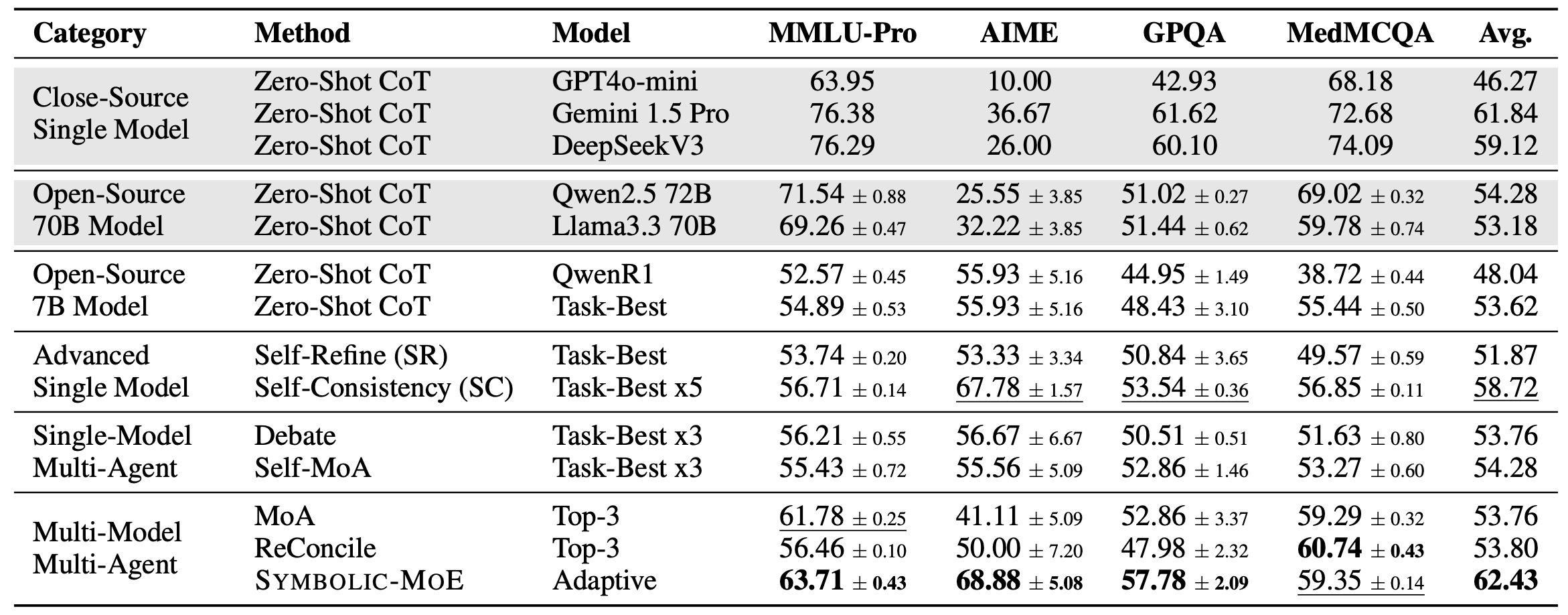
Combining existing pre-trained expert LLMs is a promising avenue for scalably tackling large-scale and diverse tasks. However, selecting experts at the task level is often too coarse-grained, as heterogeneous tasks may require different expertise for each instance. To enable adaptive instance-level mixing of pre-trained LLM experts, we propose Symbolic-MoE, a symbolic, text-based, and gradient-free Mixture-of-Experts framework. Symbolic-MoE takes a fine-grained approach to selection by emphasizing skills, i.e., specialized subcategories or subtopics such as algebra in mathematics or molecular biology in biomedical reasoning. We propose a skill-based recruiting strategy that dynamically selects the most relevant set of expert LLMs for diverse reasoning tasks based on their strengths. Each selected expert then generates its own reasoning, resulting in k outputs from k experts, which are then synthesized into a final high-quality response by an aggregator. The aggregator is chosen based on its ability to integrate diverse reasoning outputs. We show that instance-level expert selection improves performance by a large margin but – when implemented naively – can introduce a high computational overhead due to the need for constant model loading and offloading. To address this, we implement a batch inference strategy that groups instances based on their assigned experts, ensuring each model will only be loaded once. This allows us to integrate 16 models on a single GPU with a time cost comparable to prior multi-agent baselines using 4 GPUs. Through extensive evaluations on diverse benchmarks (MMLU-Pro, GPQA, AIME, and MedMCQA), we demonstrate that Symbolic-MoE outperforms strong LLMs like GPT4o-mini, as well as multi- agent approaches, with an absolute average improvement of 8.15% over the best multi-agent baseline. Moreover, Symbolic-MoE removes the need for expensive multi-round discussions, outperforming discussion baselines with less computation.



via (1) Batch Inference (2) Skipping Multi-round Discussion.


@article{chen2025symbolic,
title={Symbolic Mixture-of-Experts: Adaptive Skill-based Routing for Scalable Heterogeneous Reasoning},
author={Chen, Justin Chih-Yao and Yun, Sukwon and Stengel-Eskin, Elias and Chen, Tianlong and Bansal, Mohit},
journal={arXiv preprint arXiv:2503.05641},
year={2025}}